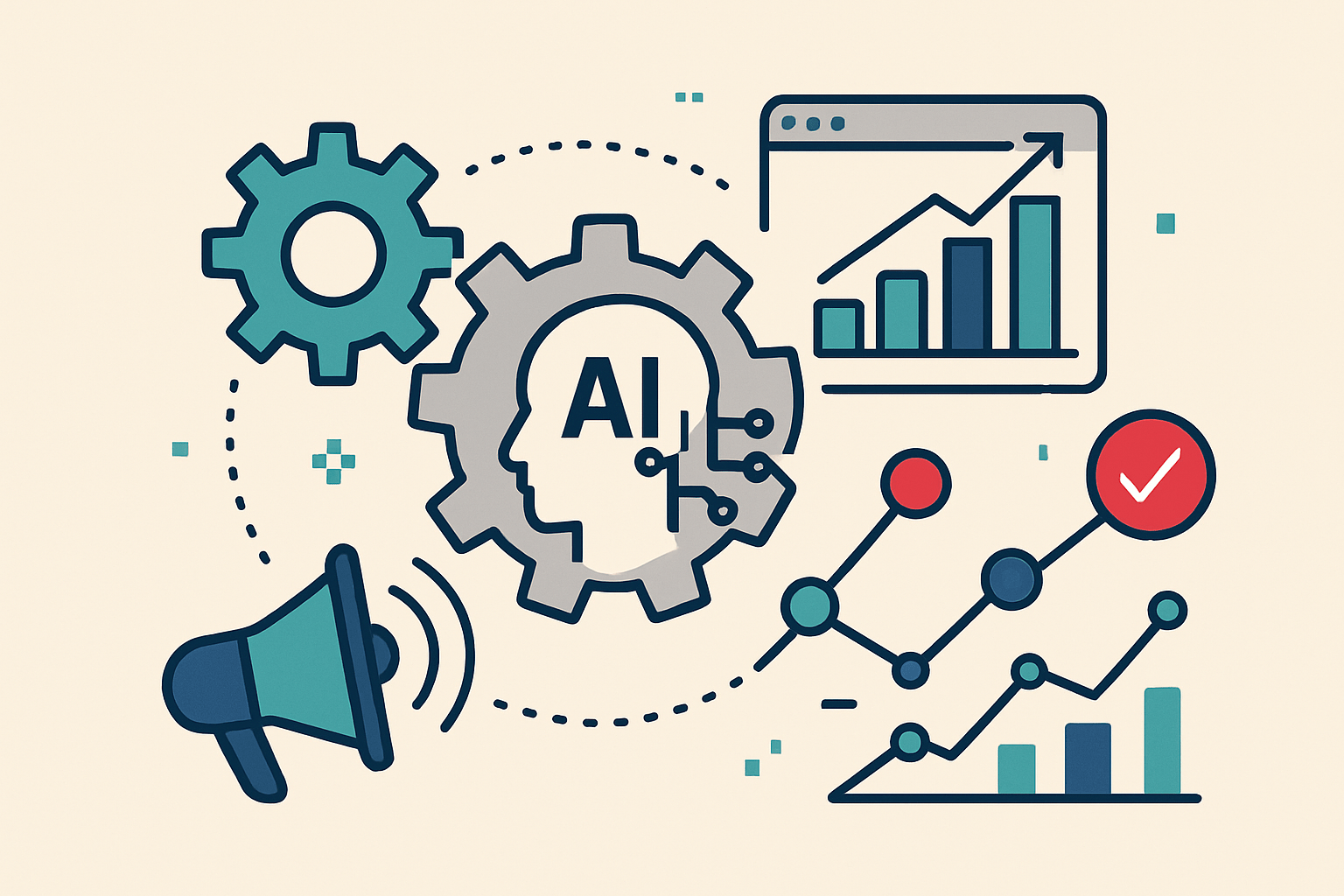
How to Integrate AI into Your Marketing Strategy for Credibility and Influence
Elevate Your Marketing with AI
Unlock the potential of AI to enhance your brand's credibility and influence.
Understanding AI’s Role in Modern Marketing
AI is transforming marketing strategies by automating processes, enabling data-driven decision-making, and personalizing customer experiences. By incorporating AI, brands can collect vast amounts of data, analyze consumer behavior, and create targeted campaigns that resonate more effectively. This integration helps businesses not only to save time but also to significantly enhance their marketing credibility and influence.
Numerous tools powered by AI are now available to assist marketers in executing their strategies. From predictive analytics tools that forecast future trends to chatbots providing immediate customer interaction, the applications of AI in marketing are extensive and varied. These technologies empower teams to optimize their campaigns, thereby increasing their overall effectiveness.
Key Areas for AI Implementation in Marketing
When considering AI integration, marketers should focus on several key areas: customer segmentation, content personalization, ad targeting, and performance measurement. AI can enhance customer segmentation by analyzing user data to identify patterns and categorize customers into meaningful segments. This level of precision allows for tailored marketing efforts that drive higher engagement.
Content personalization utilizes AI to create customized messages and offers based on individual consumer preferences. For instance, streaming platforms use AI algorithms to recommend content based on what users have previously watched, greatly improving user satisfaction and retention rates. Similarly, targeted ad campaigns benefit from AI-powered insights that determine the best channels and audiences for outreach.
Implementation Workflow for AI in Marketing
To effectively implement AI in your marketing strategy, follow this step-by-step workflow for actionable results within a week:
- Identify Your Objectives: Clearly define what you aim to achieve with AI—be it increased engagement, improved customer experience, or optimized ad spend.
- Choose the Right Tools: Research and select tools that align with your objectives. For example, platforms such as HubSpot use AI to enhance email marketing performance.
- Gather and Analyze Data: Compile existing customer data to inform your AI algorithms. This can involve customer surveys, purchase histories, or web behavior analytics.
- Develop Personalized Campaigns: Use AI to craft personalized marketing messages based on the analyzed data. A/B testing can ensure effectiveness.
- Monitor and Adjust: Review campaign performance metrics regularly, adjusting strategies based on real-time feedback and AI recommendations.
- Automate Processes: Invest in automation workflows for repetitive tasks such as email marketing or social media posts. Tools like Zapier can streamline this.
- Evaluate Results: Post-campaign, evaluate success against KPIs such as conversion rates, customer engagement, and return on investment.
Framework for Success with AI in Marketing
To ensure smooth AI integration into your marketing strategies, consider the following framework:
- Data Quality: Prioritize high-quality data collection to feed AI algorithms for better accuracy.
- Consumer Focus: Always keep the consumer at the heart of AI applications to maximize relevance and engagement.
- Continuous Learning: Foster an environment of continuous improvement, adjusting strategies based on performance data.
Case Studies: Successful AI Integration
Case Study 1: A leading e-commerce platform leveraged AI analytics to enhance customer segmentation. By analyzing purchasing patterns, the brand developed targeted campaigns that yielded a 30% increase in conversion rates during peak seasons. This not only boosted sales but also increased brand loyalty through more relevant offers.
Case Study 2: A travel agency adopted AI chatbots on their website for customer service inquiries. The chatbot reduced response time from 24 hours to mere minutes, which significantly improved customer satisfaction scores. This allowed human agents to focus on more complex queries, optimizing operational efficiency.
Counterpoint: Rethinking AI Misconceptions
A common misconception is that AI implementation is too complex for small to mid-sized businesses. However, many AI tools are designed with usability in mind, providing intuitive interfaces that require minimal training. Furthermore, the ability of AI to streamline processes can level the playing field, allowing smaller companies to compete effectively with larger firms by maximizing their marketing efforts.
Setting KPIs and Avoiding Common Pitfalls
Determining key performance indicators (KPIs) is crucial for evaluating AI marketing success. Common KPIs include customer engagement rates, conversion rates, cost per lead, and overall ROI from campaigns. Tracking these metrics enables marketers to assess the impact of their AI initiatives.
However, it’s essential to avoid common pitfalls. One major risk is over-relying on AI without human oversight, which can lead to a disconnect between automated processes and consumer needs. Additionally, a lack of updated data can hinder AI performance, making regular data audits and updates a necessity.
Next Steps for AI in Marketing
Now is the time to transform your marketing strategy through AI integration. Start by outlining your objectives and selecting the appropriate tools tailored to your brand’s needs. If you follow the outlined workflow, you will immediately notice the potential advantages AI brings to your marketing efforts. Enhance your credibility and influence by automating processes, personalizing campaigns, and continuously monitoring performance. Ready to elevate your marketing game? Schedule a meeting to dive deeper into tailored AI solutions for your brand today.




